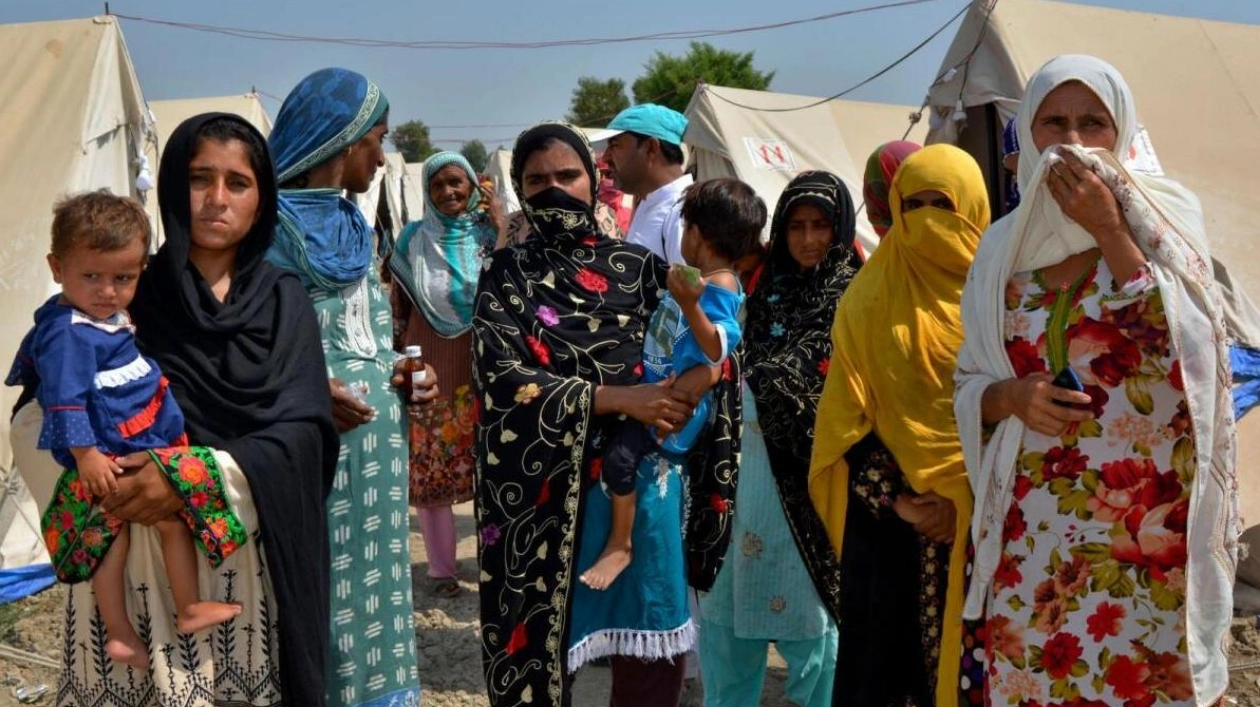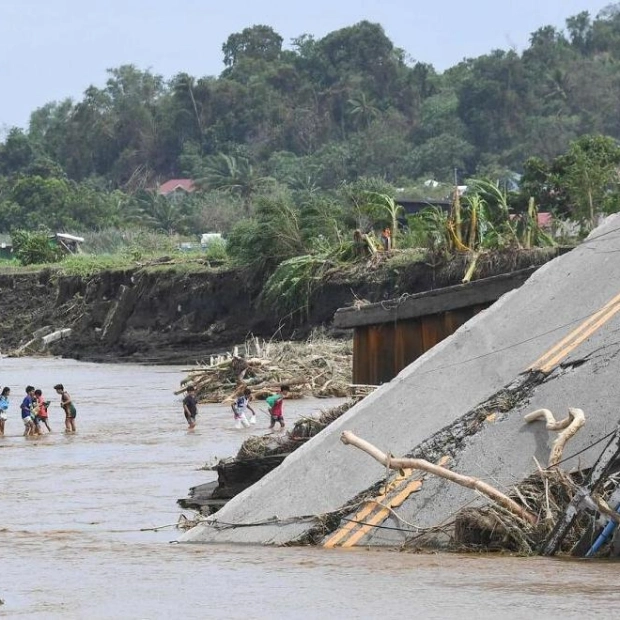As the monsoon season approached in Pakistan, 14-year-old Shamila and her 13-year-old sister Amina were married off for money, a decision made by their parents to aid their family's survival amid flood threats.
"I was happy to hear about my marriage... I thought it would make my life easier," Shamila said after marrying a man twice her age, hoping for a better future. "But now I have nothing. With the rain, I fear I might lose even more, if that's possible."
Pakistan's trend of early marriages for girls had been declining, but recent unprecedented floods in 2022 have led to a resurgence, warned by rights activists due to climate-induced economic instability.
The summer monsoon, crucial for millions of farmers and food security, is becoming heavier and longer due to climate change, increasing the risks of landslides, floods, and long-term crop damage. Many villages in Sindh's agricultural region are still recovering from the 2022 floods, which submerged a third of the country, displaced millions, and devastated harvests.
"This has sparked a new trend of 'monsoon brides,'" explained Mashooque Birhmani, founder of the NGO Sujag Sansar, which works to prevent child marriage. "Families resort to marrying off their daughters for money as a survival tactic." Since the 2022 floods, child marriages have surged in Dadu district, one of the hardest-hit areas.
In Khan Mohammad Mallah village, where Shamila and Amina were married together in June, 45 underage girls have been wed since last monsoon, with 15 in May and June this year. "Before the 2022 rains, there was no need to marry girls so young in our area," said village elder Mai Hajani, 65.
Parents rushed to marry off their daughters to protect them from poverty, often in exchange for money. Shamila's mother-in-law, Bibi Sachal, paid 200,000 Pakistan Rupees ($720) to the bride's parents, a significant amount in a region where most live on about a dollar a day.
Najma Ali, who married at 14 in 2022, initially enjoyed the excitement of becoming a wife but later returned home with her baby due to lack of resources. "I thought I would receive lipstick, makeup, clothes, and crockery," she said, holding her six-month-old baby. "Now I'm back home because we have nothing to eat."
Their village, located by a polluted canal, is barren and fishless, with a strong stench. "We used to have lush rice fields where girls worked," said Hakim Zaadi, 58, the village matron and Najma's mother. "Now, everything is dead because the groundwater is toxic, especially after 2022."
Child marriages are prevalent in parts of Pakistan, ranking sixth globally for the highest number of girls married before 18. The legal marriage age varies from 16 to 18, but enforcement is rare. UNICEF has made progress in reducing child marriage, but extreme weather events increase the risk.
Dildar Ali Sheikh, 31, planned to marry off his eldest daughter Mehtab, 10, while in an aid camp. "I thought marrying her off would at least ensure she has food and basic facilities," he said. An intervention by Sujag Sansar postponed the wedding, and Mehtab was enrolled in a sewing workshop to support her education.
However, with the monsoon rains, Mehtab fears her wedding might still happen. "I've told my father I want to study," she said. "I see married girls with difficult lives, and I don't want that for myself."






